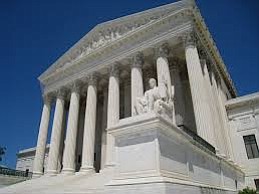Supreme Court clears the way for controversial Arkansas abortion law
CNN/Stylemagazine.com Newswire | 5/29/2018, 2:59 p.m.
By Ariane de Vogue and Maegan Vazquez, CNN
(CNN) -- The Supreme Court on Tuesday cleared the way for a controversial Arkansas law that blocks medication-induced abortions to go into effect.
The law, passed in 2015, says that any physician who "gives, sells, dispenses, administers, or otherwise provides or prescribes the abortion-inducing drug" shall have to have a contract with a physician who has admitting privileges at a nearby hospital.
The order, issued without comment, would allow the law to take effect in mid-July if no other legal action is taken and did not say if the law is legal or not.
Planned Parenthood said it will "swiftly" make another attempt to block the law in US district court.
"Arkansas is now shamefully responsible for being the first state to ban medication abortion," Planned Parenthood Executive Vice President Dawn Laguens said in a statement. This dangerous law also immediately ends access to safe, legal abortion at all but one health center in the state. If that's not an undue burden, what is? This law cannot and must not stand. We will not stop fighting for every person's right to access safe, legal abortion."
Planned Parenthood argues the law is unconstitutional because it places an undue burden on a patient's right to choose abortion.
Medication abortion -- available only early in a pregnancy -- involves the combination of two pills called mifepristone and misoprostol.
Lawyers for Arkansas say the law is a "commonsense requirement" that "merely requires medication abortion providers to have a contractual relationship (to ensure follow-up treatment if needed) with a physician that has admitting privileges."
Arkansas Attorney General Leslie Rutledge celebrated the ruling. "Protecting the health and well-being of women and the unborn will always be a priority," she said in a statement. "We are a pro-life state and always will be as long as I am attorney general."
A district court issued a preliminary injunction blocking the law noting that it would force clinics to stop offering abortion services. A panel of judges on the 8th US Circuit Court of Appeals vacated that injunction, however, and sent the case back down to the lower court to determine how many women would be unduly burdened by the so called "contract-physician" requirement.
After the appellate court ruled, Planned Parenthood asked the Supreme Court to take up the case.




